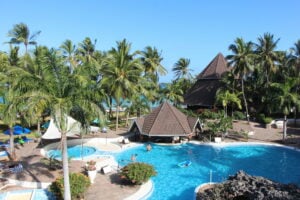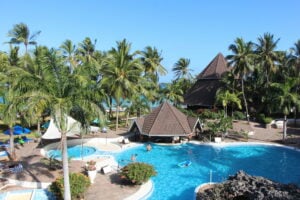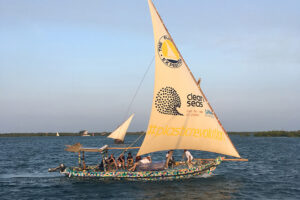INSPIRATION
The Last Straw: The Quest of Coastal Hotels To Ban Plastic Use

17 beach hotels have pledged to ban plastic use. This is to support Kenya Tourism Federation, UN Environment and Eco-Tourism Kenya in their efforts to create a plastic-free East African coastline.

In the past few months, hotels around the globe have lined up in the war against single-use plastic. The goal is to reduce the amount of non-biodegradable waste that ends up in the ocean, endangering aquatic life.
Joining the rest of the world in this fight are 17 Kenyan beach hotels banning plastic use, including bottles and straws. From Mombasa to Diani, hotels have pledged to support UN Environment’s efforts to create a plastic-free East African coastline. These are Serena Beach Resort, Diani Reef Beach Resort, Sarova Whitesands, Tamarind Mombasa, The Sands in Chale Island, and Swahili Beach Resort.

Hotels take concrete actions
Tuva Mwahunga is the general manager at Serena Beach. “We now offer mineral water in glass bottles at our restaurants,” said Mwahunga. “We also educate and inspire our employees and guests on the conservation initiatives in place.”
Serena has replaced single-use, small guest amenities with refillable dispensers. Shampoo, shower gel and lotion bottles in the guest bathrooms would typically end up in landfills. Subsequently, the hotel has removed non-reusable water bottles from meeting rooms. Drinking water is served in carafes. Since April 2018, the hotel has eliminated over 23,000 half litre plastic bottles. Straws, a big contributor of environmental waste, have been replaced with biodegradable paper straws. This eliminates 12,000 straws a year.
“In the process of eliminating all single-use plastic within its premises. We are working on replacing plastic mineral water bottles with glass bottles. ” stated Bobby Kamani, Diani Reef managing director, “Diani Reef is working on a deadline of March 1. Bamboo straws will also replace plastic straws.
Kenya bans plastics
The countrywide ban of synthetic carrier bags necessitated alternative solutions. In almost two years, Kenya has eliminated 81,000 single-use bags.

Kenya’s fight against single-use plastics is definitely on the right track. A few years back, the Government banned non-reusable plastic and flat bags. After that, the Government imposed jail terms and fines. This was followed by a successful campaign by Flipflopi which launched the world’s first flip-flop boat into the Indian Ocean. Made entirely of recycled marine waste and flip-flop slippers, it sends a global message against non-biodegradable items.
The sustainability battle has its challenges and pushbacks. Even so, just as we fight the poaching of wildlife animals, so too must we protect aquatic life.
Our Top Experiences
SEEN SOMETHING YOU LIKE?
Enquire now and our team will create a custom itinerary tailored to your preferences.

CONTACT
enquiries@nomad.africa
Tel: +254 708 238 738
Purple Nomad Ltd
PO Box 69671 - 00400
Mwanzi Avenue, Nairobi, Kenya



